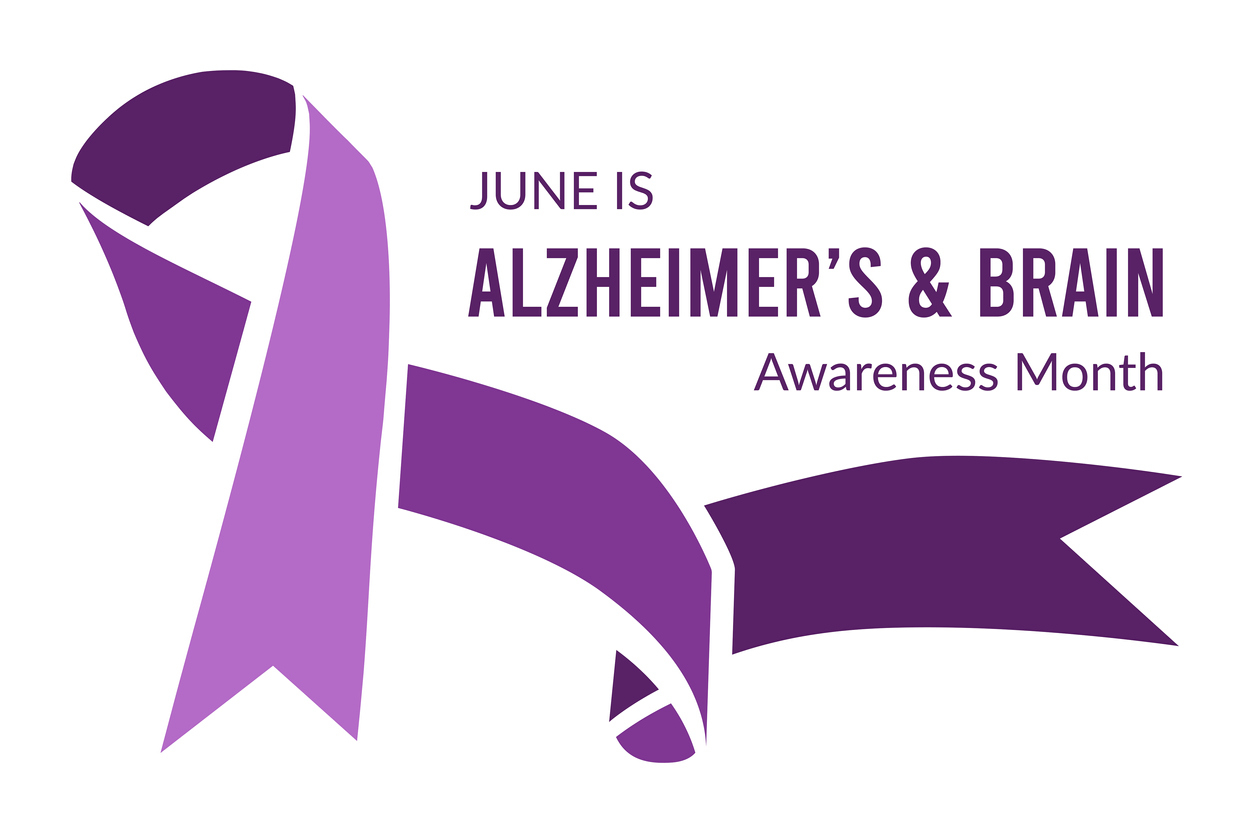Commitment + Clinical Leadership = Better Outcomes

8 Facts about Alzheimer’s
More than 6 million Americans currently live with Alzheimer’s disease. This number is expected to increase significantly, close to 13 million people being diagnosed with Alzheimer’s, within the next 30 years.1
Here are 8 facts about Alzheimer’s disease to help you learn more about it and how you can spread awareness.
Alzheimer’s gets worse over time
Alzheimer’s is a progressive disease, meaning it worsens over time. In the early stages of Alzheimer’s, memory loss is very mild and sometimes not noticeable. However, in the later stages of Alzheimer’s, it can be difficult for someone to respond to conversation and perform their usual daily activities and self-care. This often makes those with Alzheimer’s need assistance or care to help them perform everyday tasks.2
Alzheimer’s is a form of dementia, but the two are not interchangeable terms
Many people mistakenly believe dementia and Alzheimer’s are one and the same. However, this is not true. Dementia is a broad term, and Alzheimer’s is a specific form of dementia.3
Alzheimer’s is one of the most common and recognizable brain diseases. Other types of dementia include vascular dementia, mixed dementia, and dementia caused by Parkinson’s disease.
Alzheimer’s disease was first discovered in 1906
Alois Alzheimer, a German doctor, was the first to discover Alzheimer’s disease. After a patient with memory loss and cognitive functioning issues passed away, Alzheimer noticed that parts of the patient’s brain were shrunken.3
Dr. Alzheimer worked with a psychiatrist after this conclusion, and in 1910, the psychiatrist named this condition Alzheimer’s disease.
Damage to nerve cells in the brain causes Alzheimer’s
Nerve cells (neurons) in the brain are damaged when an individual has Alzheimer’s, and that’s why it’s considered a brain disease. The neurons responsible for memory, language, and thinking are typically damaged first.4
As the disease progresses, more neurons are damaged, impacting different regions of the brain. Surprisingly, these changes to the brain may occur 20 years before Alzheimer’s symptoms start.4
Age is the most well-known risk factor
Scientists have not discovered one single risk factor or cause of Alzheimer’s. However, they know that age is the best known risk factor, and Alzheimer’s commonly occurs in individuals 65 or older.5
Other factors that may have an impact include genetics and lifestyle choices, such as lack of physical activity and an unhealthy diet.
Alzheimer’s has no cure
Unfortunately, there is currently no cure for individuals living with Alzheimer’s. However, there is ongoing research to try and better understand the disease, its progression, and treatment options.2
There are treatments available that may help slow the progression of the disease. Medicines can be prescribed to those with Alzheimer’s to help them cope with their symptoms.6
The most recent treatment, Aducanumab (Aduhelm™), became available in June 2021. Aduhelm is a medication that works to reduce the buildup of beta-amyloid protein plaques on the brain, which block normal nerve cell function.3
Women are more likely to be diagnosed with Alzheimer’s
More women are diagnosed with Alzheimer’s than men. In the United States alone, there are 4 million women living with Alzheimer’s, while there are 2.5 million men who have it.4
One reason for this may be that women live longer, and age increases the risk of Alzheimer’s. Researchers also believe there could be an association between hormone changes, such as menopause, and Alzheimer’s.3
There’s an increased risk of depression and emotional stress for caregivers
Alzheimer’s disease can be difficult for family members to cope with and can cause a great amount of emotional stress on caregivers. Communication and personality changes present a challenge for the caregivers and loved ones of those with Alzheimer’s.7
Due to the devastation that caregivers are faced with, they’re more likely to experience emotional, physical, and financial difficulties. Caregivers need to seek help and support in order to care for their loved ones.1
Learn More about Alzheimer’s
Take the time today to learn more about Alzheimer’s disease. If your loved one is facing this disease, or you know someone who has become a caregiver due to this disease, knowing the facts and how to seek help can enable you to provide proper care and support.
Saber Healthcare is an organization dedicated to providing consultant services to long-term care providers. This article is for informational purposes and is not meant to be seen as professional advice. Please consult with a medical expert before relying on the information provided.
Sources
- https://www.alz.org/alzheimers-dementia/facts-figures.
- https://www.alz.org/alzheimers-dementia/what-is-alzheimers.
- https://www.healthline.com/health/alzheimers-facts.
- https://www.alz.org/media/Documents/alzheimers-facts-and-figures.pdf.
- https://www.cdc.gov/aging/aginginfo/alzheimers.htm.
- https://www.alz.org/alzheimers-dementia/treatments.
- https://www.aplaceformom.com/caregiver-resources/articles/scary-facts-about-alzheimers-disease.
